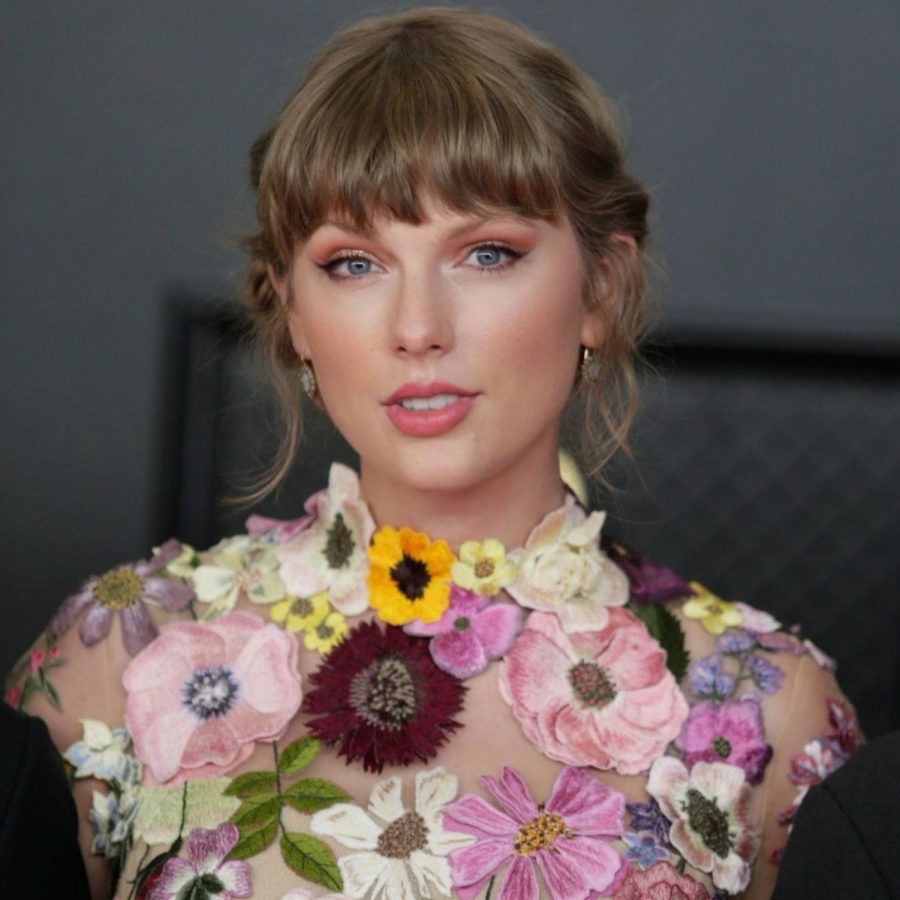Swifties: Victims of Internalized Misogyny
She started as a wavy-haired, platinum blonde teenage country singer, sweet and shy, before skyrocketing to stardom. Taylor Swift has now dominated the music industry for more than a decade. Revered as a role model for her poise and grace, Swift is surely one of the public’s most beloved celebrities — but this wasn’t always the case.
Swift has received plenty of bad press and has been the brunt of numerous jokes due to her reputation for “dating around.” The media was especially harsh on Swift in the mid-2010s. Publicity surrounding sexist jokes about Swift has resurfaced after the singer called out Netflix for an offensive line in the streaming service’s new show, “Ginny & Georgia.”
In the show’s season finale, Ginny gets into a fight with her mom, Georgia, and exclaims, “What do you care? You go through men faster than Taylor Swift.”
What is noteworthy here is that Swift decided not to remain silent. Her reply was quick-witted and hit the mark when she took to Twitter March 1: “Hey Ginny & Georgia, 2010 called and it wants its lazy, deeply sexist joke back. How about we stop degrading hard working women by defining this horse s— as [funny].”
Swift also attacked Netflix in her tweet, expressing her shock at the sexist dig after the release of “Miss Americana.” The documentary Netflix released last year covered Swift’s disappointment with the current state of politics and her refusal to remain silent any longer.
This is not the first time Swift has had to endure blatant sexism. In the mid-2010s, pop culture references and media specials were chock full of misogynistic digs at the singer.
In 2014, Swift was asked why most of her music revolves around past relationships. Swift shot back by pointing out some of her male counterparts in the industry at the time, such as Ed Sheeran and Bruno Mars, whose music also centered on ex-partners.
The same remains true today. Swift is constantly attacked for writing songs about her ex-boyfriends while male colleagues of similar fame remain noticeably untouched. Harry Styles, a singer and ex-boyfriend of Swift, centers most of his songs around his ex-partners. Styles’ song, “Cherry,” even includes an audio clip of a voicemail from his ex-girlfriend, French model Camille Rowe. Yet, Styles is not burdened with a reputation for only writing about his exes.
Michela Fahy, FCRH ’23, whose admiration for Swift has grown alongside Swift’s career, chimed in on the topic. “I can think of a dozen different artists who all write about their love lives exclusively, but … for some reason that’s [seen as Swift’s] thing, to … write about her exes and stuff, even though that’s … not unique at all,” said Fahy.
In 2015, Swift was attacked for writing “male-bashing” music. This accusation is reminiscent of the hordes of people who blindly label all feminists as man-haters. Swift quickly spoke out against the male-bashing comment, saying, “[Referring to my music as] boy-bashing songs … is a sexist way of saying heartbreak songs. To [trivialize] someone who’s heartbroken is really cruel.”
It was not just the media attacking Swift, though. Despite Swift’s talent, it was decidedly “not cool” for children to like the singer in the early stages of her career. Outspoken admiration for Swift was widely ridiculed according to sympathetic Swifties on Instagram.
“I remember back in middle school when everyone was always talking about how Taylor Swift was always with a different guy every week,” writes Jake Ritchie (@jake_ritchie47 on Instagram), a self-proclaimed Swiftie.
This sentiment is not uncommon among Swift’s fans. Plenty of fans are recent arrivals after years of dissing and dismissing Swift as cultural taboo.
“A lot of girls [and] guys hate [Swift] for no reason because they just want to go along with everyone else … like she’s had a normal amount of boyfriends for someone who’s been in the public eye for so long and people always try to put her down for it but the same wouldn’t happen for men,” agrees Jessica Michels (@jessmichelss on Instagram), another fan of the singer.
On Instagram, Swifties display an outpouring of love and support for Taylor Swift, but many admit to being ex-haters of the singer.
“I have always struggled with my relationship with Taylor Swift but I think as I’ve become more educated and have grown up the real issue, I see now, is myself,” explains Swiftie Jackson Giammattei (@jacksongiammattei on Instagram). “I remember joking about [Swift] in middle school about how she dates too many guys and can’t keep a relationship, but what I didn’t realize is I was slut-shaming [her].”
The question, of course, turns to why so many young children and preteens dislike Taylor Swift. The answer? Internalized misogyny.
Adrian J. Dehlin and Renee V. Galliher, researchers at Utah State University, explore the paradox of misogyny present in young women in their journal “Young Women’s Sexist Beliefs and Internalized Misogyny.”
While sexism is a well-known phenomenon that demonstrates the belief that men are superior to women, attempting to justify the discrimination and mistreatment of women, internalized misogyny is a lot harder to identify. Internalized misogyny is defined as the internalization of these sexist beliefs and practices. According to Dehlin and Galliher, internalized misogyny is made up of both self-objectification and the unquestioning acceptance of gender roles.
“Given the omnipresent nature of misogynistic and sexist messages received by women in patriarchal societies, the internalization of sexist ideologies is often automatic and unnoticed,” write Dehlin and Galliher.
In other words, internalized misogyny is the innate acceptance of sexist practices by both women and men as a result of the inherently misogynistic society they are being raised in. Young girls’ hatred of Taylor Swift is a perfect example of this.
Public discourse is the only reason young girls (and boys) cited for disliking Swift. Young women do not want to be seen supporting Swift because she is depicted as being girly and ridiculed for writing about her boyfriends too often. Young girls idolize being different, or “not like other girls,” because they recognize the disadvantageous treatment of women in society. Many young girls dislike Swift because of an innate fear of being seen as too feminine, and femininity is often punished by society. Young girls witnessed this in the media’s attacks of Swift.
This generational dislike of Taylor Swift is a display of inherited patriarchal instincts. The fact that many fans of Swift have grown from being haters of the singer only further proves this theory, since it takes growth and maturity to recognize these instincts.
Taylor Swift has demonstrated a calm elegance far beyond her years starting, of course, with the 2009 VMAs.
Swift was just 19-years old when she attended the 2009 VMAs. Her career was still fragile and young. It was her first time performing at the award show, and she was up for one award: Best Video by a Female Artist.
When Swift won the award, it was memorable for all the wrong reasons. Kanye West jumped on the stage and critiqued the win, explaining that the award should have gone to Beyoncé.
The crowd immediately started booing West, but Swift believed the boos were for her. It was a traumatic experience for a young woman to go through.
Swift has also been a role model for young girls with her outspoken feminism. After being sexually assaulted by a man in 2013, Swift sued for all of $1, a move that was meant not to make financial gains but to encourage other young women to speak out about their experiences.
Swift wanted her experience to be an “example to other women who may resist publicly reliving similar outrageous and humiliating acts.”
Swift is quite obviously a wonderful role model. Even her musical accomplishments are undeniable. Swift recently won the Album of the Year award at this year’s Grammys, making it her third Album of the Year win. She is the first woman to do so and only the fourth artist in history so honored — tying with the recording legends Frank Sinatra, Paul Simon and Stevie Wonder.
If you are not a fan of Swift because you do not like her music, that is understandable. But if you do not like Swift because of her dating history, ask yourself: Is that reasonable? Or are you just being sexist?
Taylor Herzlich, FCRH ’23, is a journalism major from Mt. Sinai, N.Y.

Taylor Herzlich is a senior at Fordham College at Rose Hill. She is majoring in journalism with a minor in English. Taylor started writing for the Ram...










































































































































































































